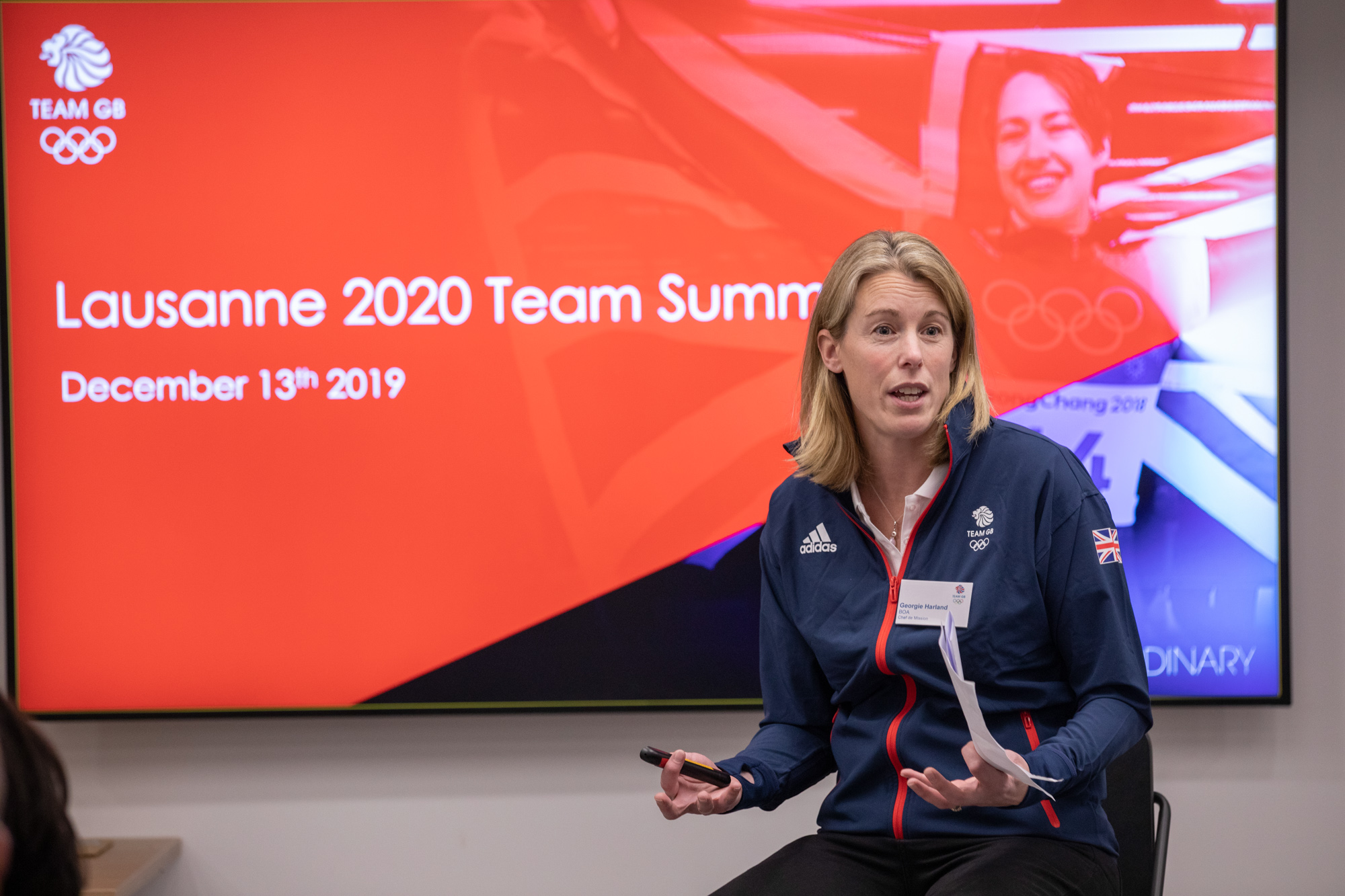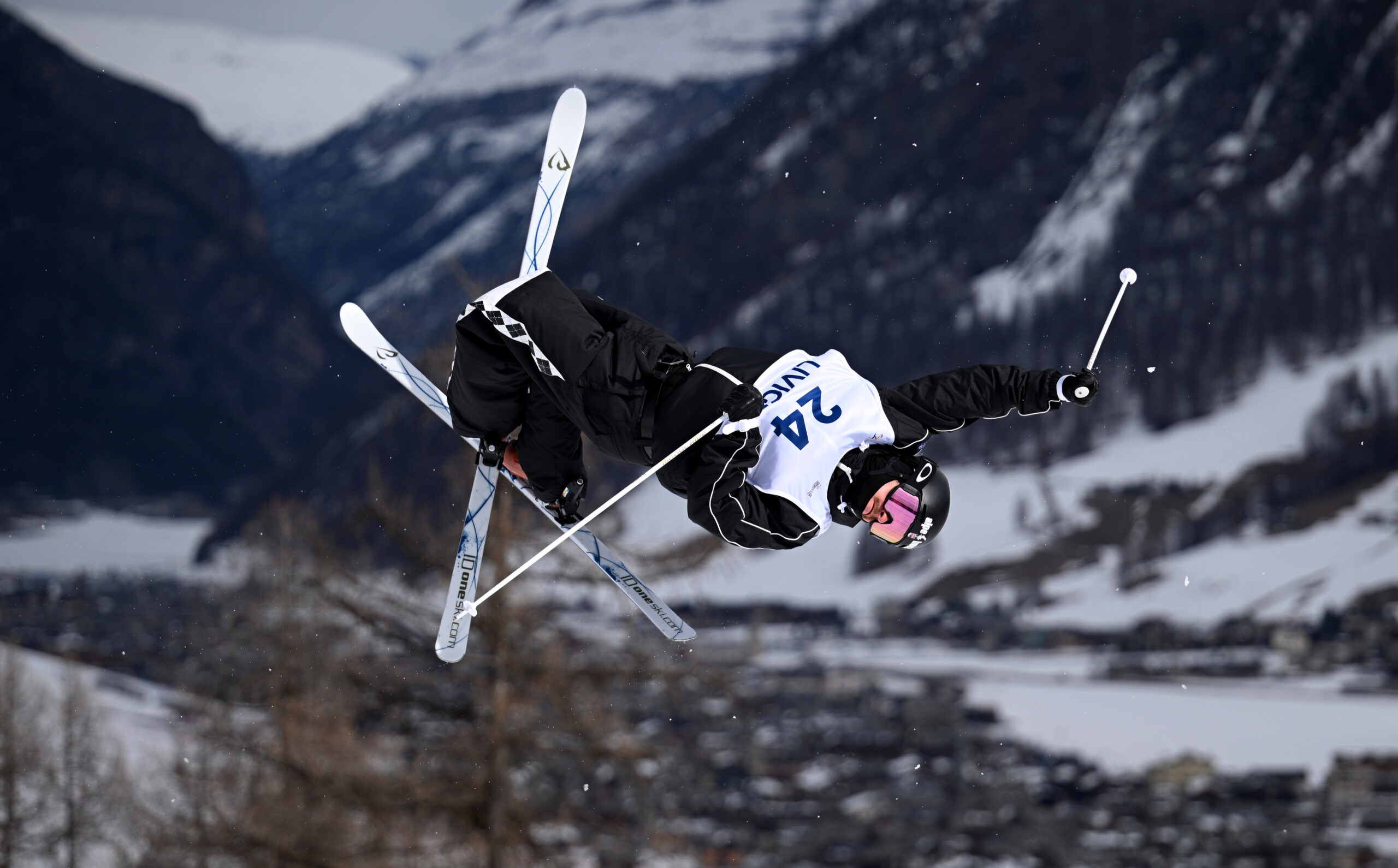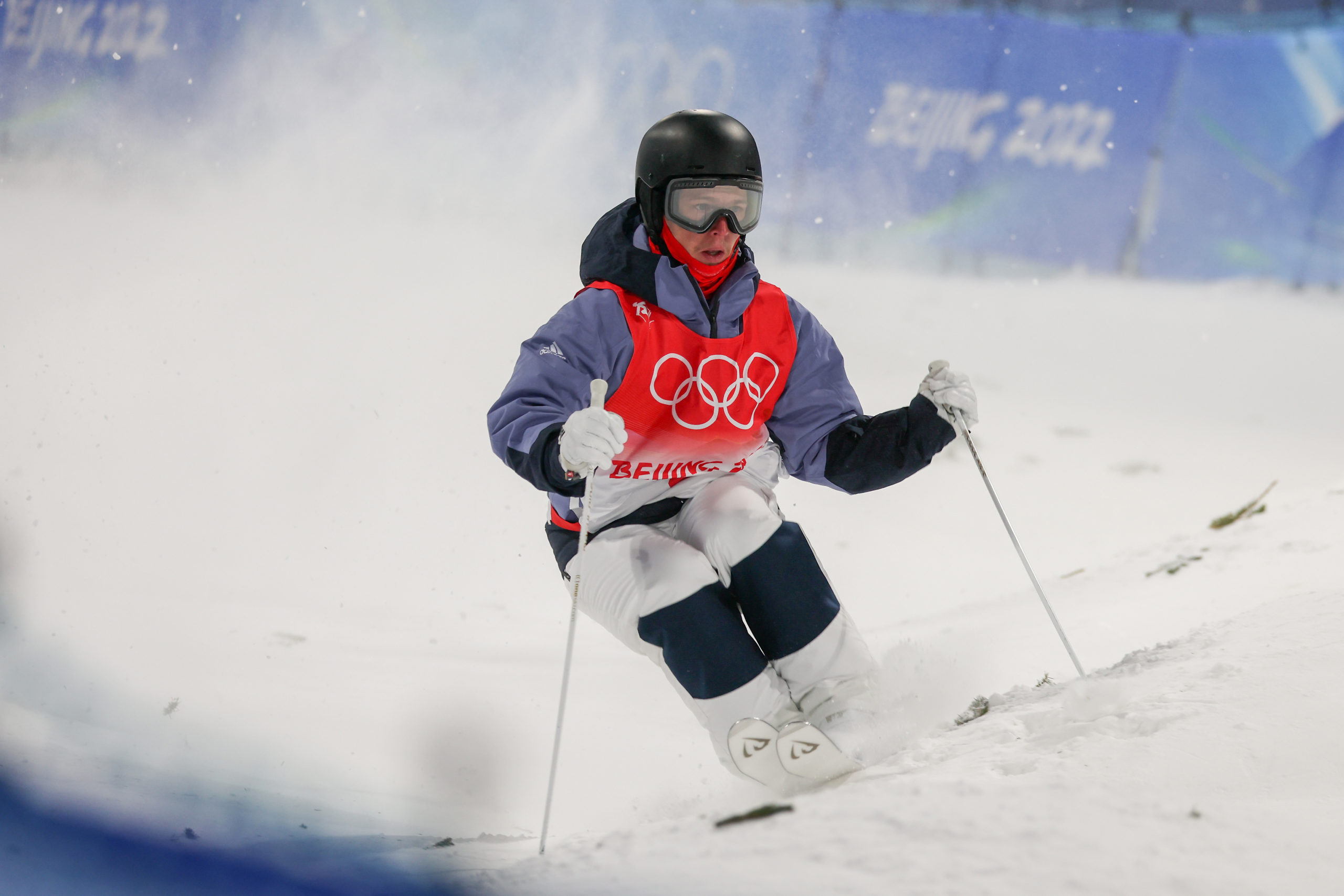
Please tell us a bit about your full-time role at the British Olympic Association?
As Chef de Mission for Beijing 2022 I am responsible for the planning and the delivery of the delegation in Beijing. I am also Deputy Chef de Mission for Tokyo 2020 and day-to-day I am a Sport Engagement Manager for the BOA which means I have a portfolio of sports that I am responsible for to make sure that their planning is on track for the upcoming Games.
What is the role of the Chef de Mission at the Olympics?
I have overall accountability for the entire delegation, which includes athletes, coaching staff and wider support staff in country. Additionally, I oversee the planning phase, to ensure that we create the very best platform for athletes to perform when they get to the start line in Beijing. That includes everything from operations, to flights, accommodation to pre-Games training, making sure we have all of the nice home from home items in the Olympic Village, the performance services, medical staff and the medical equipment that goes with that, our programme that supports nearest and dearest of athletes, kitting out just to name a few. We have over 20 different project areas that make up our Beijing plan
The delivery of Beijing in its entirety falls on my shoulders but I’ve got amazing people who are supporting me to ensure that we deliver something special for the athletes.
What are you most looking forward to at the 2022 Olympic Winter Games?
What I’m really looking forward to is seeing the athletes competing. We’re obviously all experiencing some challenges at the moment due to the pandemic, but just watching the way that the athletes are coping with that has been so inspiring. There are some extremely talented athletes in the pipeline so I can’t wait to see them in action in Beijing.
What are you focussing on at the moment for Beijing?
There are three main areas we are focusing on at the moment. The first is the three clusters – typically at a Winter Games you have a coastal cluster and a mountain cluster, but we’ve got three to manage in Beijing. We’re looking at how we deploy our staff and operations to best support the athletes and sports throughout their time in Beijing.
The second is our footprint around the core Organising Committee which includes things like accommodation for non-accredited officials and pre-Games training sites where athletes can go prior to entering the Olympic Village.
Thirdly is how we manage the unprecedented situation where we have two Olympic Games within six months of each other and making sure that Beijing is at the forefront of everybody’s minds.
In the past it used to be the case that we’d deliver two Olympic Games within the space of six months (with 1992 being the last time this was the case), but what’s different now is our footprint and our deliverables, which are a lot wider than they used to be. It is a different situation that we find ourselves in, however we’ve got a dedicated team at the BOA that are working on Beijing, so that is their focus. We’ve also brought some of our planning forward compared to our usual timings to make sure we have as much as we can in place before Tokyo.
There will be a great opportunity for us to learn from Tokyo. I think the Winter delegation has a great advantage to have gone through Tokyo in the new environment that we find ourselves in. There’s a real opportunity to implement the learnings we take from Tokyo into Beijing, which can only be a positive.
How are the venues shaping up in Beijing?
We have monthly calls with the Beijing Organising Committee and the latest information is that all the venue construction is proceeding as scheduled and that their timings haven’t been affected by the pandemic, which is great news. We know that Beijing will have some amazing venues across all three clusters, and we remain in close contact with them regarding the test events due to take place.
What does a normal day look like for a Chef de Mission during the Olympic Games?
Typically, the day starts with a leadership call where we run through any issues from the day before and any actions that need to be implemented. We then look more broadly at the day ahead to see which sports are arriving, who’s competing and what areas we need to focus on for that particular day.
I often have a Chef de Mission meeting, which takes place first thing in the morning, where all the Chef de Missions from every country come together and we hear from the Organising Committee on anything we should be aware of and are able to raise any concerns we have. I may also have a meeting with all Team GB sport Team Leaders, where we check in with them and ensure everything is on track.
Following on from that my priority will ensuring those athletes and staff already in country have all that they need and also meeting and greeting new athletes arriving, ensuring they settle into the environment as quickly as possible as well. Finally, checking in with the athletes who are departing. Around this, supporting athletes competing is always a great part of the day.
No day is ever the same, that’s for sure!
What advice would you give someone that wants to work at an Olympic Games?
My biggest piece of advice would be to grab any opportunities you’re given, which is exactly what I did when I retired as an athlete. I took up a lot of voluntary opportunities and then off the back of that I realised it was something that interested me; staying in sport but not standing on the start line myself.
What I learned early on from working at the BOA is that there is a lot more to the organisation than I realised when I was an athlete. Sport is just one part of it; we have a marketing and communications team, a commercial team, legal team, finance team – there’s all sorts of different areas that you can get an understanding from, not just sport.
If you see an opportunity to get involved and it’s something that you’re interested in, then do take up those opportunities where you can.
Tell us something that not many people would know about unless they had worked at an Olympic Games?
As an athlete I had no idea what went on behind the scenes and now I know that the team has a few days to transform what is essentially an empty hotel in the Olympic Village, with some beds and wardrobes, into a home from home for the athletes. Whether that’s the rugs or cushions that you see, the coffee or the tea or all the branding up on the walls, all of that comes as part of what we call our ‘Home from Home’ strategy; designed to make sure that athletes feel like they are at home rather than them moving into an environment that could be in any country.
We have a catalogue of over 100 different items to enhance the Home from Home experience. Here are some approximate examples of what we’d usually order for a Winter Games:
- 20,000 teabags and 6,000 coffee pods
- 100 sofas and 80 armchairs
- 200 Team GB dressing gowns and 200 Pride the Lion teddies
- 1,000 clothes hangers
- 180 Union Jack cushions
- 80 Union Jack rugs
- 40 fridges, 60 kettles, 25 irons and 15 coffee machines
 Share
Share

